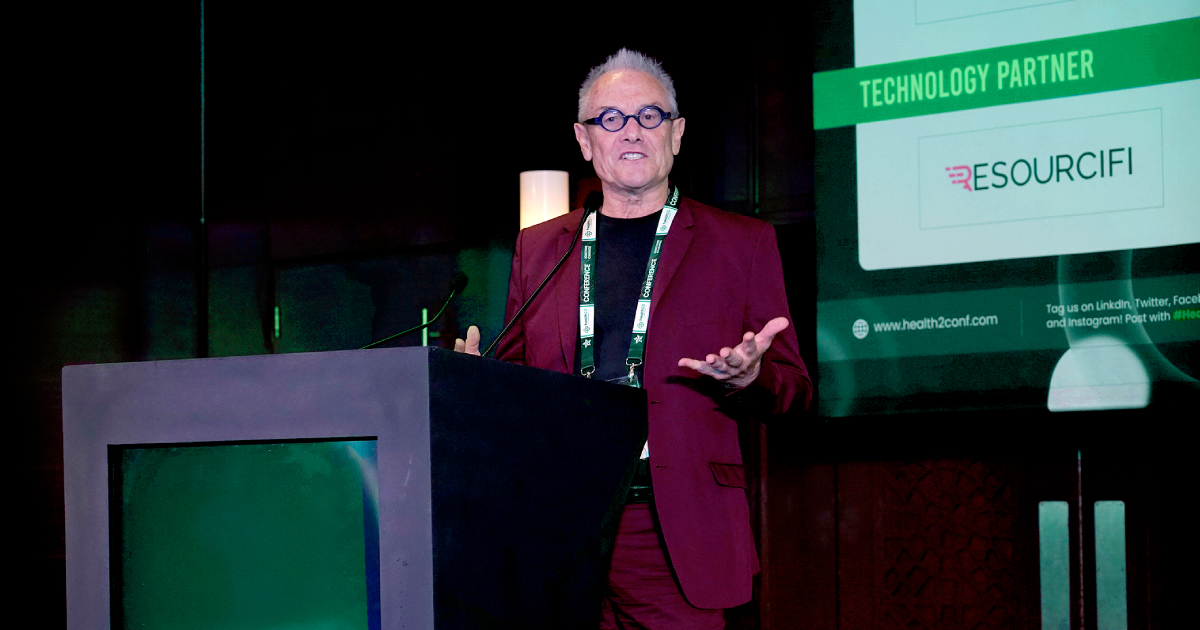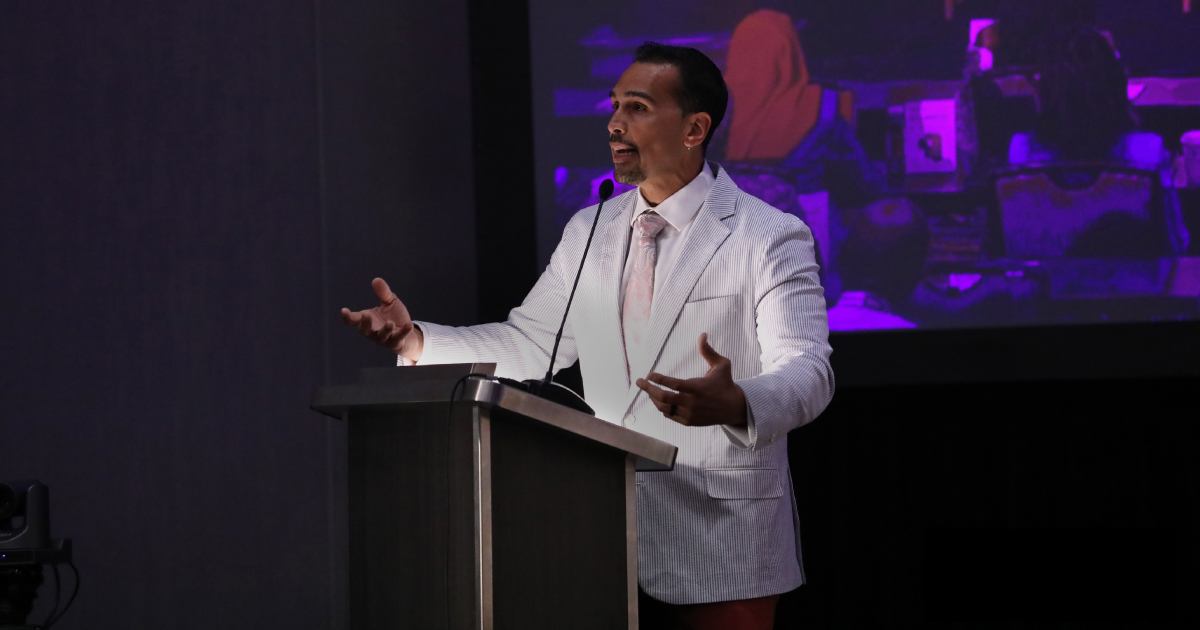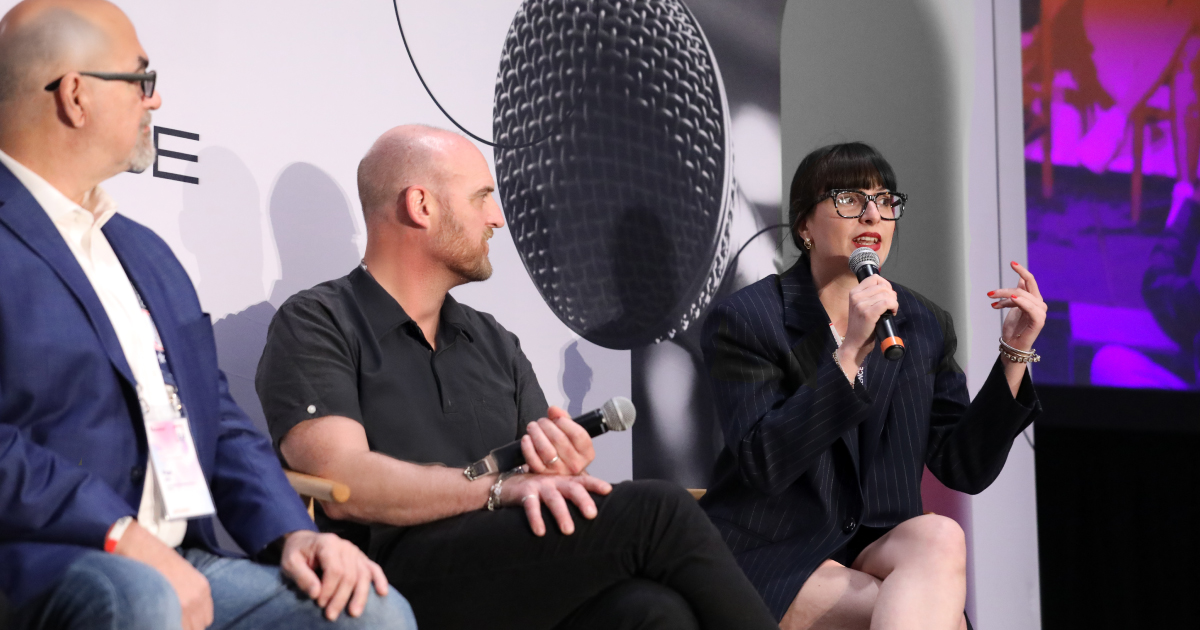

As we look toward the future of leadership in 2025, one thing is clear: the business world is evolving rapidly, and the qualities that once defined strong leadership are shifting. Gone are the days when leaders were solely expected to make tough decisions, wield authority, and drive profits above all else. In this new era, empathy is becoming the hallmark of successful leadership.
As Simon Sinek famously said, "Leadership is not about being in charge. It's about taking care of those in your charge." This quote embodies the essence of leading with empathy. At the Founders 2.0 Conference, we believe that leading with empathy is not just a nice-to-have skill—it's a necessity for founders who want to thrive in today's fast-paced, highly interconnected, and often unpredictable business landscape.
So, why is empathy so crucial for founders in 2025, and how can it make a significant difference in the success of a company? Let's dive in with insights from our global founders conference.
Empathy isn't just about being kind or understanding others' emotions—it's about actively listening, acknowledging feelings, and being attuned to the needs and perspectives of the people around you. In the context of leadership, empathy plays a pivotal role in fostering trust, collaboration, and innovation within a team. These factors are essential for navigating the challenges of the modern business world.
2025 brings an array of new challenges for founders, from managing diverse teams to leading through economic uncertainty and societal shifts. In this environment, empathy offers a competitive edge. It enables leaders to build strong, resilient teams that feel seen, heard, and supported, leading to increased engagement, retention, and performance.
As we see in companies like Patagonia and Salesforce, empathetic leadership helps create a culture where employees are more motivated, creative, and loyal. When leaders show they care about their teams on a personal level, it promotes a sense of belonging and purpose, which translates into better business outcomes. This is why, at our entrepreneur summit, we emphasize the importance of empathetic leadership as a cornerstone for success in the ever-evolving entrepreneurial landscape.
Empathy is no longer just a "soft skill" or a buzzword; it's a business strategy. In 2025, empathy is a powerful tool that helps founders connect with customers and employees alike, establishing trust and loyalty in ways that purely transactional relationships cannot.
Empathetic leadership has proven successful in companies like Zappos, where Tony Hsieh's focus on customer service and employee well-being created a loyal customer base and a passionate workforce—two critical ingredients for long-term success.
Source: artoffit.org
Empathy also plays a vital role in shaping a brand's reputation. Today's consumers are drawn to brands that align with their values, and empathy helps build that emotional connection. As a global founders conference, we believe in recognizing that leadership in 2025 is about more than just executing a business plan—it's about creating a business that resonates with people on a deeper level.
Leading with empathy doesn't mean being soft or overly lenient; it's about striking a balance between understanding the emotional needs of your team and making tough, informed decisions. Here are a few practical ways from our entrepreneur summit that founders can integrate empathy into their leadership style:
While leading with empathy can yield incredible benefits, it's not without its challenges. Some founders may fear that empathy could undermine their authority or decision-making ability. However, the truth is that empathy is not a sign of weakness—it's a sign of strength.
It's essential to strike a balance between empathy and performance. Empathetic leaders know when to push for results, but they do so in a way that acknowledges the human side of their teams. Setting clear expectations while showing compassion is the key to promoting a high-performing, yet supportive, work environment.
As we look ahead to the future of leadership, one thing is clear: empathy will be at the core of successful organizations. In 2025 and beyond, the most successful founders will be those who prioritize the well-being of their teams, promote open communication, and lead with heart.
At the Founders 2.0 Conference, we're excited to explore how empathy can shape the future of entrepreneurship. Through our entrepreneurship summit, we encourage all founders to embrace empathetic leadership, not just as a strategy, but as a fundamental way of engaging with the people who make your vision possible. Leading with empathy will not only drive success in your company but will also inspire the next generation of leaders to follow your example.
Empathy is no longer optional for founders—it's essential. As we move into 2025, it will become increasingly clear that those who lead with empathy will be the ones who not only survive but thrive in the ever-evolving business landscape. At the Founders 2.0 Conference, we look forward to delving deeper into this important topic and exploring how you, as a founder, can leverage empathy to create a thriving, compassionate, and successful business.
The future of leadership is empathetic, and we can't wait to see you lead the way.
Ans. The Founders 2.0 Conference is a premier event designed for entrepreneurs and founders to connect, learn, and grow together. It provides a platform to explore new trends, strategies, and insights that drive success in today's entrepreneurial landscape.
Ans. Empathy in leadership helps foster a culture of trust, collaboration, and innovation. It ensures that leaders understand the needs and motivations of their teams, creating a more engaged and loyal workforce.
Ans. Absolutely! Empathetic leadership can help you build strong relationships with your team, attract loyal customers, and create a positive company culture—key factors in ensuring your startup's long-term success.
Ans. Attending the Founders 2.0 Conference gives you access to expert-led sessions, networking opportunities, and invaluable insights into building a successful and sustainable business. It's a great way to stay ahead of industry trends and connect with other founders.
Ans. You can apply empathetic leadership by actively listening to your team, fostering open communication, supporting employee well-being, and leading by example. These practices help build trust and improve team dynamics, which are essential for long-term business success.

Posted on : Wed, 11/05/2025 - 15:48

Posted on : Thu, 11/06/2025 - 16:26

Posted on : Fri, 09/26/2025 - 15:26

Posted on : Fri, 09/26/2025 - 15:05

Posted on : Wed, 09/24/2025 - 16:18

Posted on : Wed, 09/24/2025 - 16:18

Posted on : Fri, 08/08/2025 - 16:41

Posted on : Thu, 07/31/2025 - 18:18

Posted on : Fri, 07/25/2025 - 20:07

Posted on : Thu, 06/26/2025 - 15:09